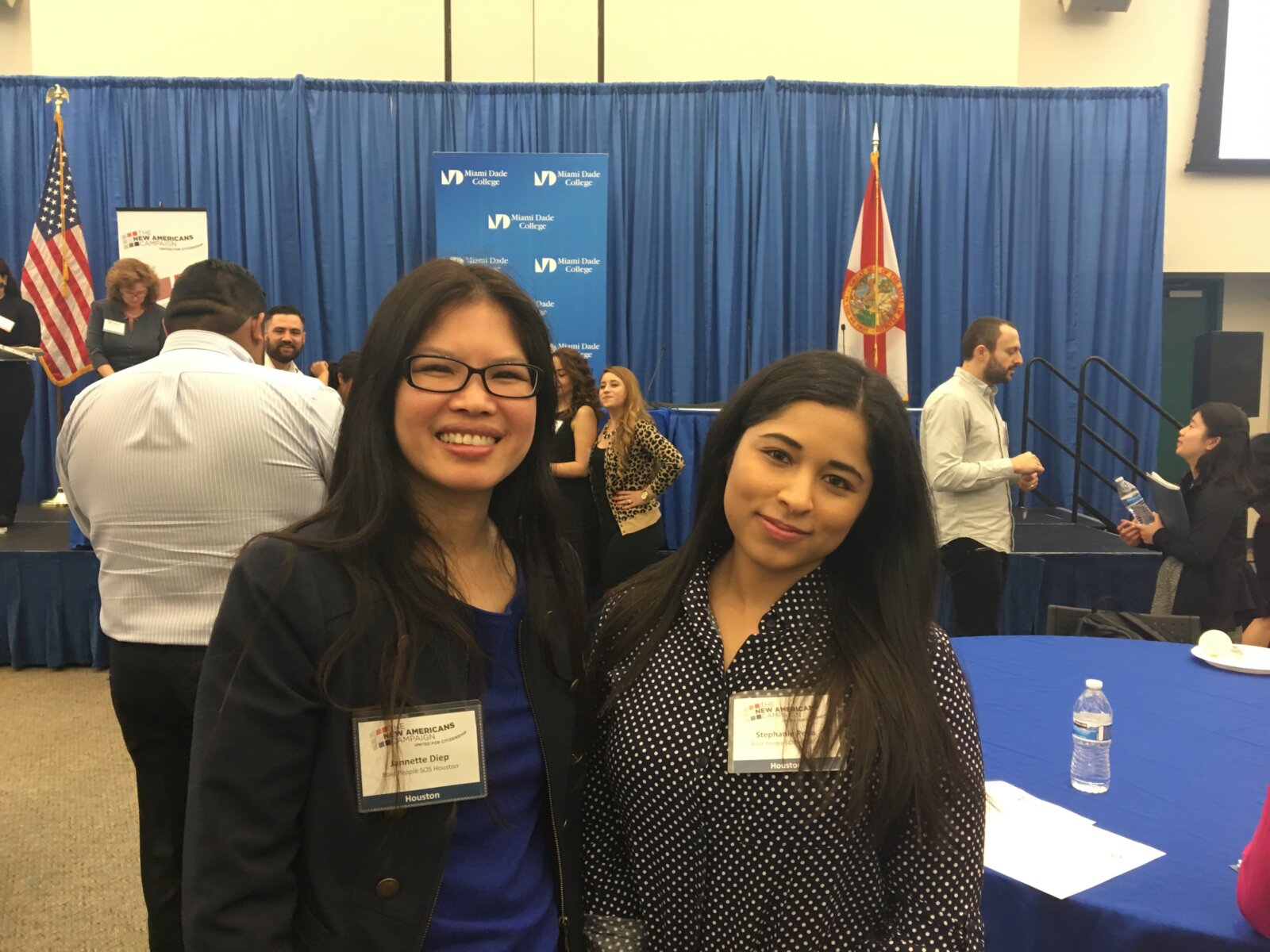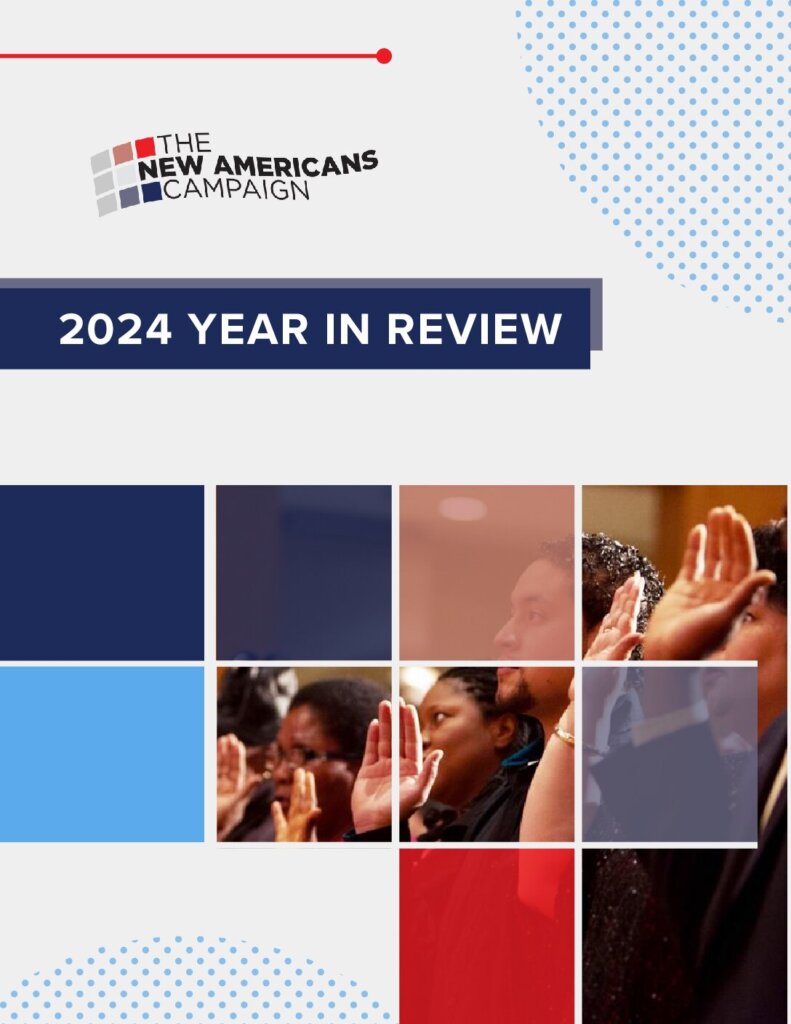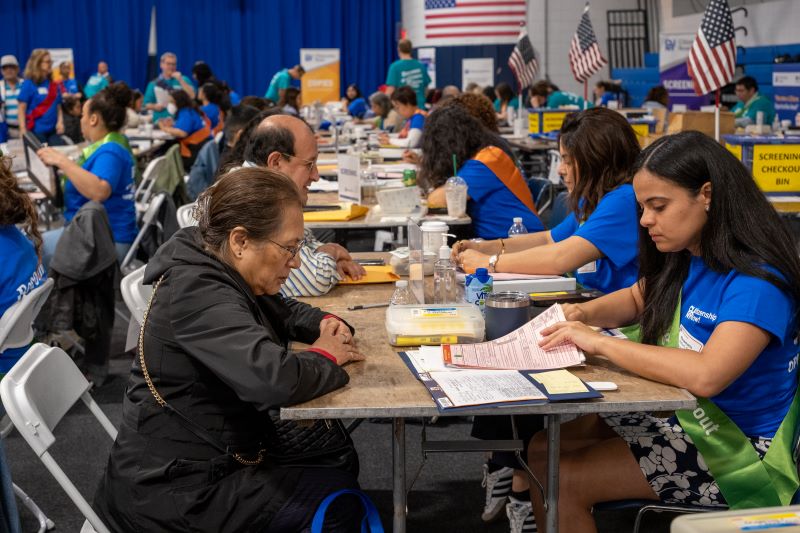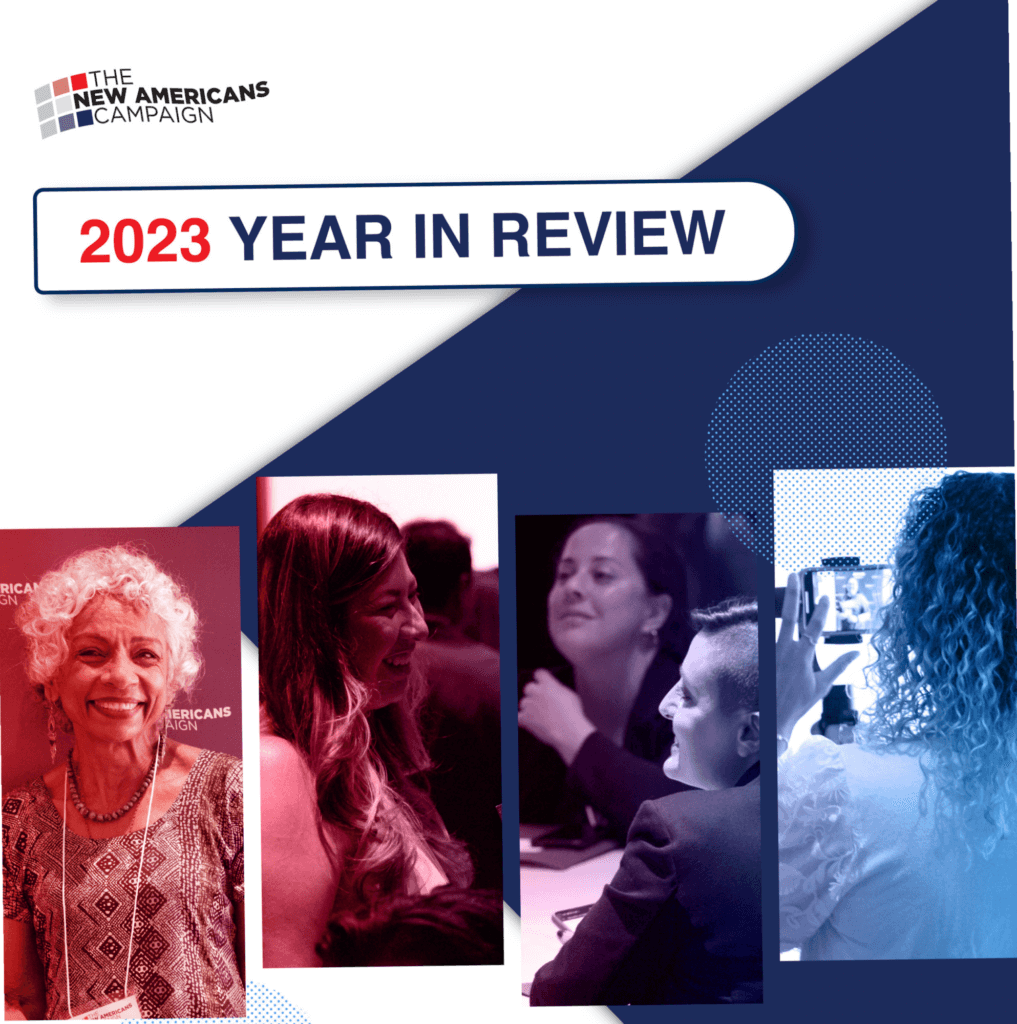Using Technology to Engage Our Community

Explore More
Jannette Diep, Executive Director, Boat People SOS-Houston shares her insights from our February 2018 conference in Miami.

We learned a lot about technology this year. Although we learn about technology at every New Americans Campaign (NAC) conference, I think we learned even more this time around. The technology was at a different level, meaning that we upgraded after beginning with just the basics. In fact, we adopted a texting platform just this past December. It was created by a tech startup whose staff is committed to working with the New Americans Campaign, and it is called “Rep.” Arthur Shwab from Rep did the presentation on the software, talking about how it worked and how it could cater to NAC partners, while my part of the presentation was to talk about how we used it, and whether it is something that was useful in our work.
After we help people naturalize, Boat People SOS also wants to help them vote. We used Rep to pilot our Get-Out-The-Vote program. We sent out 200 texts to our own naturalized students using Rep’s bulk text application. We sent very personalized texts and our students knew where the text came from and who was texting them. We congratulated them on becoming US citizens and we told them we wanted to see if they had registered to vote. If they had not, we asked them to please let us know if they wanted help.
From that text, honestly, we had an overwhelming response! Within that day that we tested the text we were surprised by the positive response, “Can you register me to vote as well as my family members? They are US citizens too!” And then we had some people who asked, “I don’t know if I am registered to vote, can you please check for me?” And we had a whole bunch of people asking for additional information.
One of the questions we were asking was how do you keep your community engaged? This Rep platform keeps our community engaged. We had people who came in for us to register them from this text and we asked them if it would be OK to send out more information, because the election primary is coming up. We asked, “Can we send you information, location, dates, up until election day? Would you mind?” And they said, “That’s exactly what we need—information. The reason I never registered, and the reason I never voted was because I didn’t know anything about it!” We can also text them where and when to go. I am just so excited about this new software.
Another question I asked was how do you break down barriers like the language barrier? So when we texted people, we texted them in their own languages. Vietnamese and Spanish were the two languages we used. The texts also came from a trusted source, so people were more likely to open that text instead of deleting it. At the conference, I shared this with all these community organizations who are partners in the New Americans Campaign from all over the country and they saw how it worked. And after the presentation I had a lot of groups that came up to me and said, “Gosh, that’s great!” So a lot of people from the conference are going to go home and try it. I think we are all looking for ways to keep our community engaged and informed. And how do you do that? A lot of people may not watch TV or don’t know where to go to get the information. But if they can get it in the palm of their hand, by text in their own language, that’s information that they would not be able to get anywhere else.
Many in our community have smart phones now. Feeling comfortable using technology didn’t happen overnight. It took several years. But now they are able to use apps, they are able to send texts. Over the years, to be honest with you, the community was not fond of smart phones. Our elders, our immigrants, and refugees didn’t want to touch the smart phones because it was too scary. But over the years when we introduced smart phones and we had computer classes and said bring in your smartphone so we can show you how it works. For our citizenship class we actually created a website and students are able to go onto their phone, into our website and review vocabulary, or listen to pronunciation of words and follow-up on class materials. We trained them for all of that. And now a lot of them are very tech-savvy because we made them get used to navigating through their smartphone. With this new technology of texting, it all came together, actually. And people are not afraid anymore and they know how to open the text, read a text, and respond to a text. The software also runs reports on how many texts you got, how many people answered these questions. So that will be good for reporting numbers for funders too. Arthur from Rep talked about how they developed it and tweaked it for the way that NAC partners would actually use this software.
We learn so much from the conference and we always come back and implement something. This year I learned how to use social media like the Facebook platform for targeted ads. I learned that on Facebook you can promote your citizenship event by creating an ad or video and that you can choose your audience, the frequency of post according to your budget, and also track the performance of your Facebook post. So we’re going to probably start using Facebook ads as a mechanism to really get the word out about citizenship and our workshops.
I think for everyone at the conference the census is becoming a huge concern because it seems that the government is looking to us—to community-based leaders—to take charge of this because they’re not putting money into hiring people, or putting up booths, or other steps, to stress the importance of being counted in the census. This places a lot of responsibility on the community-based organizations to make sure that our community is being counted. And even though we have a focus on naturalization, a lot of us worry about the people who are undocumented, the people who are homeless, the people who are maybe not living in their own homes but elsewhere. This year the census is also planning to use technology. The administrators want everyone to go online to submit it. You can still ask for the paper form, but it seems that going forward, they are expecting people to go online and fill out the form. And so there are issues of people who may not have access to computer or people who may not have Internet services. We have to really figure out how are we going to be able to mobilize our community to do this when funding doesn’t exist. I think that’s one thing that each local collaborative will have to meet about—to figure out a plan on how we’re going to do this.
~



